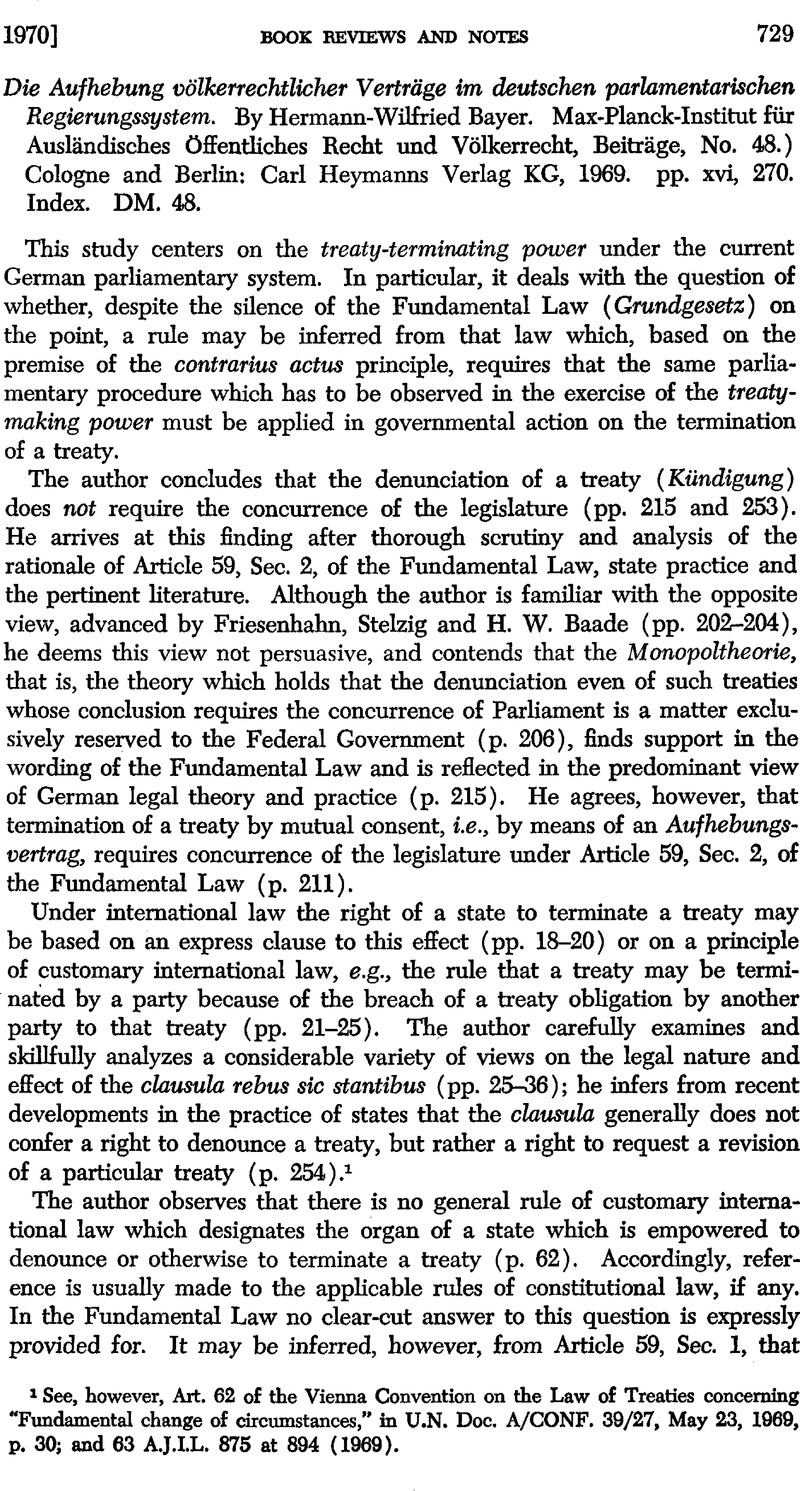No CrossRef data available.
Article contents
Die Aufhebung völkerrechtlicher Verträge im deutschen parlamentarischen Regierungssystem. By Hermann-Wilfried Bayer. Max-Planck-Institut für Ausländisches öffentliches Recht und Völkerrecht, Beiträge, No. 48.) Cologne and Berlin: Carl Heymanns Verlag KG, 1969. pp. xvi, 270. Index. DM. 48.
Published online by Cambridge University Press: 28 March 2017
Abstract

- Type
- Book Reviews and Notes
- Information
- Copyright
- Copyright © American Society of International Law 1970
References
1 See, however, Art. 62 of the Vienna Convention on the Law of Treaties concerning “Fundamental change of circumstances,” in U.N. Doc. A/CONF. 39/27, May 23, 1969, p. 30; and 63 AJ.I.L. 875 at 894 (1969).
2 See Art. 46(1) of the Vienna Convention on the Law of Treaties in U.N. Doc. A/CONF. 39/27, May 23, 1969, p. 23; and 63 A.J.I.L. 875 at 890 (1969).
3 See on this point Art. 46(2) of the Vienna Convention on the Law of Treaties, ibid., which reads: “A violation is manifest if it would be objectively evident to any State conducting itself in the matter in accordance with normal practice and in good faith.” In this connection it may be mentioned that the Legal Departments of the International Monetary Fund and of the International Bank for Reconstruction and Development have for many years requested prospective members to submit, prior to their acceptance of membership, a Memorandum of Law, signed by the Minister of Foreign Affairs or the Minister of Justice, setting forth the law and practice of the prospective member in regard to acceptance of international agreements and to attach copies of laws, decrees or of specific provisions of laws or decrees referred to in the Memorandum of Law. This practice of the Bretton Woods Institutions effectively precludes all speculations and presumptions concerning constitutional limitations on the treaty-making power of prospective members; see IMF, Information on Filing Application for Membership (January, 1965), pp. 4 and 15.


